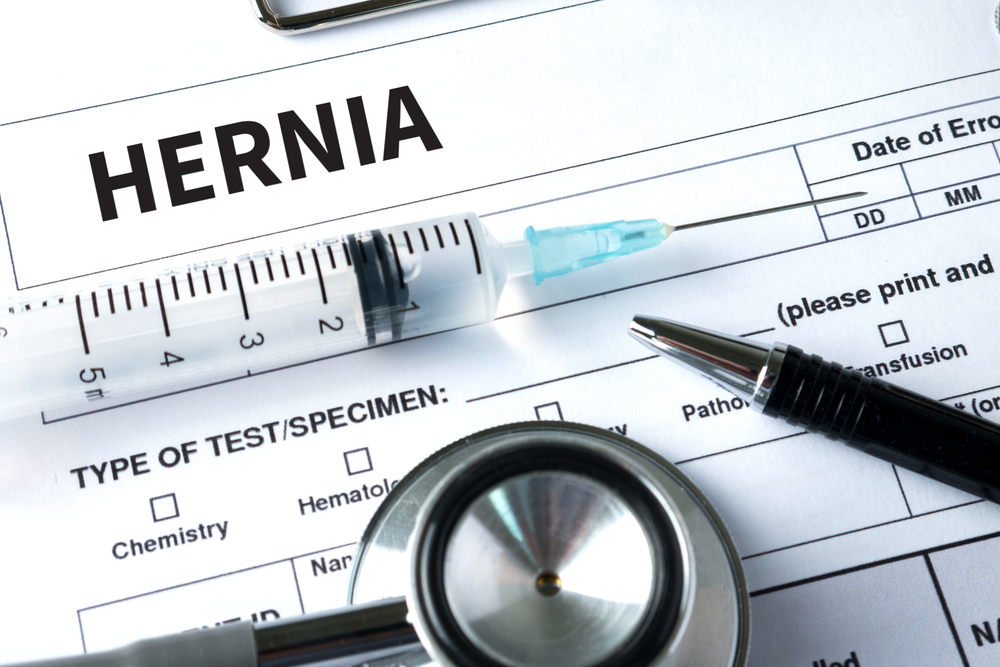Hernias: Causes, Symptoms, Treatments, and More
 Hernias are a relatively common health condition that impact thousands of people in the United States every year. But, despite how frequently they occur, most people know very little about the true causes of hernias, the different types of hernias, or how they are treated. We’d like to give you a quick look at this medical condition so that you have a better idea of what they are.
Hernias are a relatively common health condition that impact thousands of people in the United States every year. But, despite how frequently they occur, most people know very little about the true causes of hernias, the different types of hernias, or how they are treated. We’d like to give you a quick look at this medical condition so that you have a better idea of what they are.
What Is a Hernia?
A hernia occurs when an internal organ begins to push through the muscle or tissue that surrounds it. The most common example of this is when the intestines push through an area in the abdominal wall. While most hernias are not life-threatening when they begin, the situation can become much more severe if left untreated. And, it’s important to note, a hernia will not simply go away on its own, so receiving proper treatment is essential.
What Causes a Hernia?
Hernias are typically caused by a combination of strain and general muscle weakness. However, the exact source of the strain and cause of the muscle weakness can obviously vary; and, depending on their exact source, a hernia can appear quite suddenly or can develop over a longer period of time. Sources of muscle weakness can include:
- Damage from an injury or recent surgery
- Persistent, severe coughing
- Aging
- Congenital defect causing the abdominal wall to close improperly during development
Even if these weaknesses exist, that does not necessarily mean that a hernia will occur. Typically, a source of strain is required as well, which pushes the organ through that weakened area of the muscle. Types of strain that may cause a hernia can include:
- Pregnancy
- Constipation
- Lifting something too heavy
- Ascites, or fluid in the abdomen
- Surgery near the weakened area
- Persistent sneezing or coughing
As you may note, some of these sources of strain can also be the source of muscle weakness. Hernias are most common in the abdomen, but may also appear in the upper thigh, groin, or near the belly button.
Types of Hernias
There are actually a few types of hernias, and some are much more common than others. The most common type of hernia is an inguinal hernia. This type of hernia occurs when the intestines push through a weak point in the wall of the lower abdomen; often, this occurs in the inguinal canal, giving this type of hernia its name. These hernias account for 70 percent of all hernias, and are more common in men than in women.
Hiatal hernias are most common in individuals over 50 years of age. These hernias occur when part of the stomach presses up through the diaphragm and into the chest cavity.
Incisional hernias occur after surgery, when the muscles surrounding the surgical site are weakened or damaged. For example, after an abdominal surgery, the intestines may push through the incision scar or surrounding tissue.
The final type of hernia is an umbilical hernia. This occurs in infants under 6 months, when the intestines bulge through the abdominal wall near the bellybutton. Unlike other kinds of hernias, an umbilical hernia often goes away on its own, as the child grows and abdominal walls become stronger.
Symptoms of a Hernia
The most prominent symptom of a hernia is a bulge or lump in the herniated area. It may be visible to the eye, or you may only be able to feel it through touch; it will likely be easiest to note the lump when standing up, bending over, or coughing. Other symptoms can vary depending on the type of hernia.
For inguinal hernias, look out for these symptoms:
- Pain or discomfort in the lower abdomen, especially when lifting, coughing, or bending over
- Pressure, weakness, or a sense of heaviness in the abdomen
- Burning or aching sensation near the site of the lump
Symptoms of a hiatal hernia may include:
- Acid reflux
- Chest pain
- Difficult swallowing
However, in some cases, hernias have no noticeable symptoms, and are only noticed during a routine physical or other medical examination.
Treatments for Hernias
Often, hernias are treated by simply monitoring and treating its associated symptoms. This is often the case for more minor hernias, when the risks of a surgery do not outweigh the benefits. However, hernia symptoms are often greatly improved through lifestyle changes like adjusting your diet, losing weight, avoiding heavy lifting, taking certain medications, and/or wearing a hernia support belt.
In more severe cases, your doctor may opt for surgery to correct the hernia. This can either be done with open surgery or laparoscopic surgery. While laparoscopic surgery is much less damaging and requires less recovery time, not all hernias can be repaired with this type of surgery. If you believe you have a hernia, be sure to speak to your doctor about lifestyle changes and treatment options to deal with your condition.